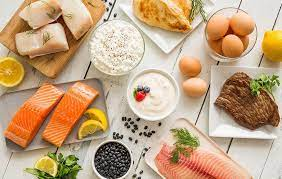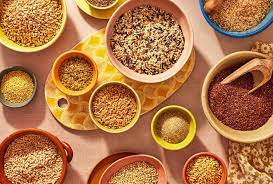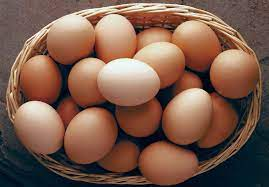Nutrient-dense foods are those that provide a high amount of nutrients (such as vitamins, minerals, and antioxidants) relative to their calorie content. Including nutrient-dense foods in your diet is important for overall health and well-being. Here are some examples of nutrient-dense foods:
- Leafy greens (spinach, kale, Swiss chard)
- Cruciferous vegetables (broccoli, cauliflower, Brussels sprouts)
- Bell peppers
- Carrots
- Sweet potatoes
Fruits:
- Berries (blueberries, strawberries, raspberries)
- Citrus fruits (oranges, grapefruits, lemons)
- Apples
- Bananas
- Kiwi
- Lean Proteins:
- Chicken breast
- Turkey
- Fish (salmon, tuna, trout)
- Lean cuts of beef or pork
- Tofu
Whole Grains:
- Quinoa
- Brown rice
- Oats
- Whole wheat bread
- Barley
Nuts and Seeds:
- Almonds
- Walnuts
- Chia seeds
- Flaxseeds
- Sunflower seeds
Dairy or Dairy Alternatives:
- Greek yogurt
- Low-fat milk
- Cheese (in moderation)
- Fortified plant-based milk (almond, soy, coconut)
Legumes:
- Lentils
- Chickpeas
- Black beans
- Kidney beans
Healthy Fats:
- Avocado
- Olive oil
- Fatty fish (salmon, mackerel)
- Nuts and seeds
Eggs:
- Eggs are a good source of protein, vitamins, and minerals.
Herbs and Spices:
- Fresh herbs (parsley, cilantro, basil)
- Spices (turmeric, cinnamon, ginger)
Including a variety of these nutrient-dense foods in your diet can help ensure that you get a wide range of essential nutrients for optimal health. Keep in mind that individual nutritional needs may vary, so it's essential to consult with a healthcare professional or a registered dietitian for personalized advice based on your specific health goals and requirements.










0 Comments